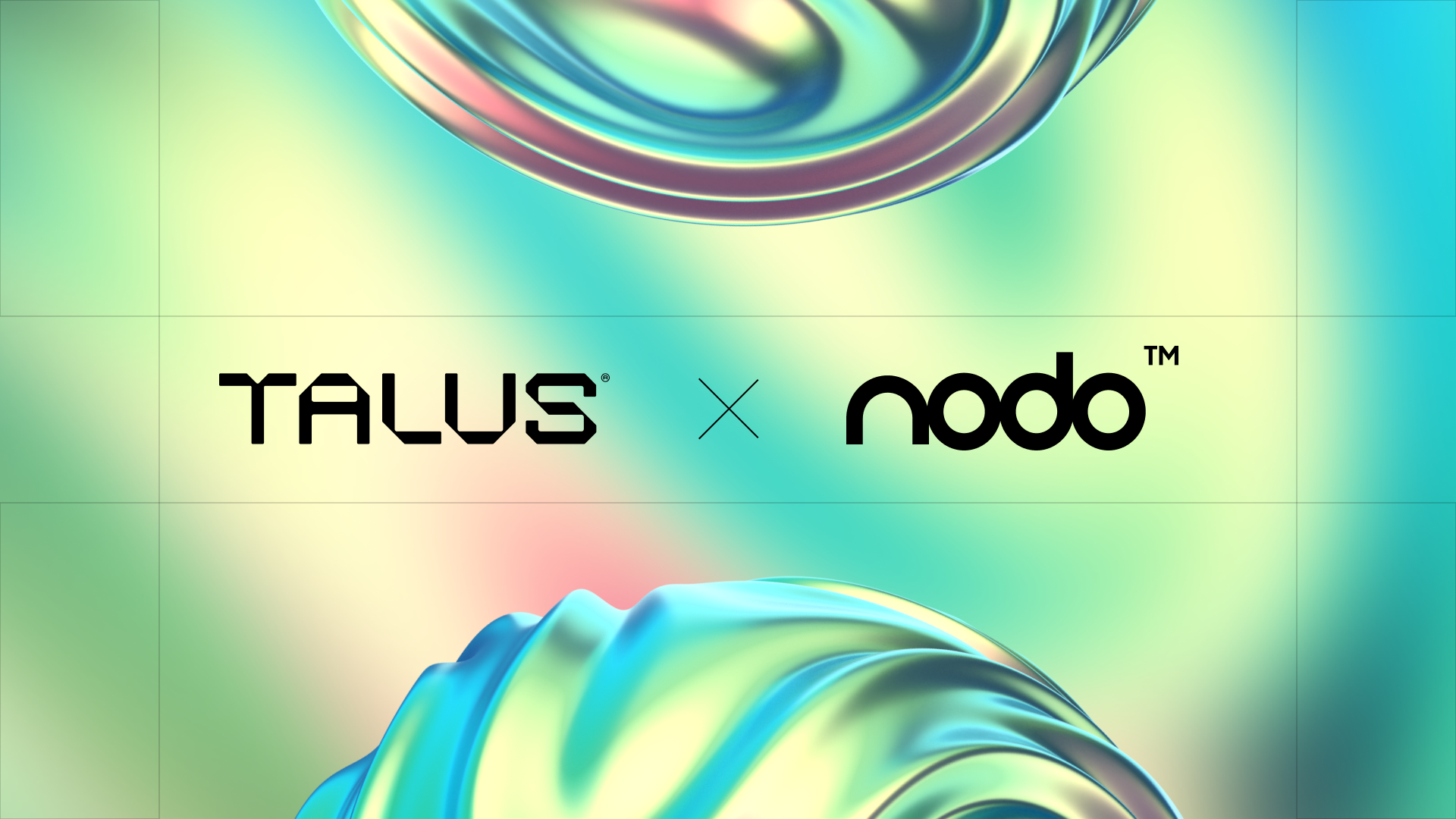Talus Partners with NODO to Bring Autonomous Liquidity Management to Talus Agents

We're thrilled to partner with NODO, a multichain AI-powered yield generation layer supported by the Sui Hydropower Accelerator, to integrate intelligent capital deployment capabilities into the Talus ecosystem. This collaboration represents a significant advancement in AI agent autonomy, enabling Talus Agents to manage and optimize liquidity strategies with unprecedented precision and independence.
Solving DeFi's Capital Efficiency Challenge
Traditional DeFi vaults have long struggled with a fundamental limitation: they focus on selecting "safe" tokens based on historical models rather than optimizing how capital is actually deployed. This approach leaves significant value on the table, especially in volatile markets where timing and execution precision matter most.
NODO addresses this gap by building AI agents that don't just pick assets, they master the art of deployment. Their autonomous liquidity provision agents respond in real-time to volatility, slippage, and fee opportunities, making execution decisions based solely on live pool conditions rather than outdated historical data.
Talus provides the onchain execution environment that brings these agents to life — enabling transparent, verifiable, and automated capital deployment directly within DeFi protocols.
What Makes NODO Special
NODO's approach to autonomous liquidity management stands apart through several key innovations:
- Real-Time Precision: Instead of relying on predictive models that often fail in volatile markets, NODO's agents analyze live DEX conditions, volatility patterns, slippage rates, and fee dynamics, to make informed deployment decisions moment by moment.
- Fully Autonomous Execution: These agents operate entirely onchain without requiring human input or centralized triggers. Once deployed, they independently manage capital allocation and rebalancing based on market conditions.
- Modular AI Architecture: NODO employs specialized agent types, including AI Analyst Agents for forecasting and risk assessment, Market Making Agents for spread optimization and MEV protection, and Yield Optimization Agents for cross-protocol rebalancing.
Building Better DeFi on Sui with Talus + NODO
This partnership between Talus and NODO represents a powerful step forward for DeFi on Sui. While NODO has built a robust AI AgentKit optimized for Sui’s Move language and parallel execution, Talus provides the critical infrastructure to take these agents further.
By integrating with Talus, NODO’s agents gain access to a trustless environment for deploying autonomous financial strategies at scale. Talus’s execution layer and workflow system allow these agents to interact with DeFi protocols in real-time, while maintaining transparency and traceability.
As NODO prepares to launch its first AI agents on Sui mainnet this July, Talus will serve as the foundation for secure, scalable, and composable DeFAI — unlocking new models for capital deployment, fee generation, and automated strategy design onchain.
Technical Synergies
This integration opens up several powerful opportunities:
- Smart Agent Compatibility: NODO's AI agents leverage Talus' AI agent primitives for seamless offchain and onchain execution coordination.
- Enhanced Decision-Making: By integrating the Talus' Nexus SDK into NODO's agent architecture, they'll enable richer decision-making capabilities that go beyond pure liquidity management.
- Cross-Platform Development: By integrating with Nexus, Nodo can extend AgentKit’s capabilities into the onchain world, enabling agents built with Nodo to run in verifiable, trustless environments.
Looking Ahead: The Future of Autonomous Finance
As NODO continues to scale, targeting 100,000 onchain token holders and expanding to additional blockchains, the partnership with Talus will establish new standards for what autonomous AI agents can achieve in DeFAI.
This isn't just about better yield farming or smarter trading algorithms. It's about creating truly autonomous financial entities that can manage capital, execute strategies, and generate sustainable returns without human intervention, all while maintaining full transparency and decentralization.
The combination of Talus' agentic framework, Nexus, and NODO's precision liquidity management represents a major step toward an autonomous AI economy where agents don't just assist with financial decisions, they become sophisticated financial operators in their own right.
For users and developers in the Talus ecosystem, this partnership means access to battle-tested liquidity management capabilities that can be integrated into any Talus Agent workflow, opening up new possibilities for autonomous revenue generation and capital optimization.
About Talus
Talus is building the backbone of the first autonomous AI economy, where agents aren't just automated, they're built to earn. The Nexus framework empowers developers and creators to launch autonomous AI agents, known as Talus Agents, that can transact, execute complex onchain workflows, and generate sustainable revenue across DeFi, gaming, social ecosystems, and beyond. With plug-and-play integrations, co-branded launches, and shared monetization, Talus Agents are powerful engines of attention, utility, and economic impact.
To learn more about Talus, follow us on Twitter, check out our GitHub, visit our Discord, and read our blog.
🛠 Developers interested in building Talus agents can join our Devnet to start experimenting with the Nexus framework today.
About NODO
NODO is a multichain AI-powered yield generation layer that powers real-time financial insights and optimizes onchain portfolio management. Our AI agents operate entirely onchain, able to learn and adapt funding strategies based on real-time market conditions to ensure capital efficiency, minimize downside risks, and enable reliable yield compounding for both DeFi users and projects. Our DeFAI solution is professionally audited and we are proudly backed by EMURGO, Adaverse, and Sui Hydropower.
For more information, visit their website, follow them on Twitter, or join their community on Discord.
